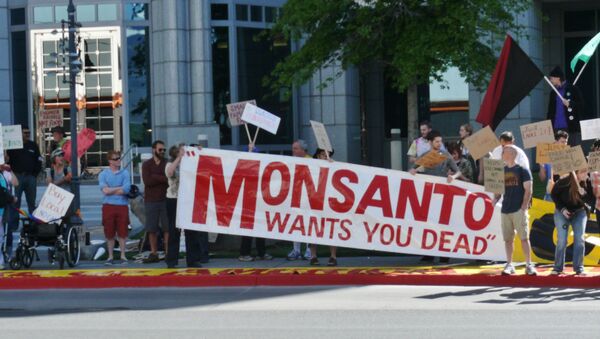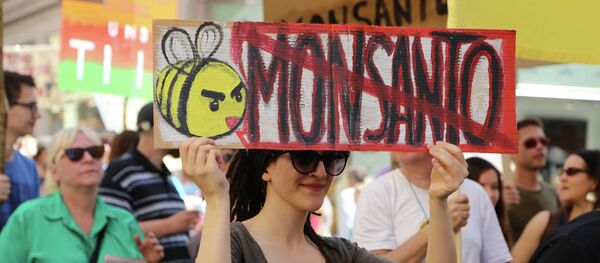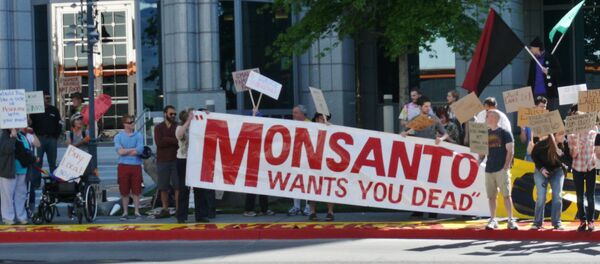MOSCOW (Sputnik) – Thousands of people marched against Monsanto on Saturday in over 400 cities around the world, raising awareness about the alleged health threats posed by the American corporation's genetically modified (GMO) seeds and chemical herbicides.
The third annual March Against Monsanto (MAM) covered more than 40 countries from North America to Africa, Europe and Asia. Rallies were held in state capitals as well as smaller cities.
A placard photographed by a MAM participant in Brussels, Belgium read "Dear Monsanto, if you don't love life, don't kill humans, don't kill animals, don't kill our planet, kill yourself."
The protests covered the locations of Monsanto's plants, such as Peyrehorade on the southwestern tip of France, as well as the Swiss cities of Basel and Morges, where the $20-billion company has its headquarters for Europe, Africa and the Middle East.
Roundup anger
The MAM (March Against Monsanto) movement claims to be shedding light on the dangers surrounding Monsanto's genetically modified seeds and herbicides allegedly linked to cancer, expressing strong concerns over Roundup.
That particular weed control product contains a herbicide called glyphosate that allegedly destroys gut bacteria and damages the immune system in humans, California-based lawyer T. Matthew Phillips, who is suing Monsanto, told Sputnik on Saturday.
Glyphosate and products containing it, such as Roundup, have been approved by regulatory bodies worldwide, including the US Federal Drug Administratino (FDA).
According to the FDA, a residual amount of glyphosate in foods is not harmful to humans, but concerns about the herbicide's hazardous health and environmental effects persist.
US farmers continue to use large quantities of glyphosate, despite the fact that it does not biodegrade and has an array of harmful effects on the human body, the Los Angeles-based lawyer claimed.
Farmers not happy
Monsanto agribusiness spokesperson Charla Lord defended her company's genetically modified foods and chemical herbicides on the eve of the global protests against them.
The goal of the Missouri-based corporation is to help farmers use fewer resources and find more sustainable ways of doing business, Lord told Sputnik on Friday.
The Saturday MAM demonstrations were nonetheless attended by farmer organizations.
In the West African nation of Ghana, anti-Monsanto rallies were led by national trade unions and farmer groups, including the Peasant Farmers Association of Ghana and the General Agricultural Workers Union of the Trades Union Congress.
Monsanto employs 22,000 people in plants located in 61 countries. Critics say the agribusiness giant creates widespread health risks through its use of genetically modified organisms (GMO) and exerts undue influence on government bodies to suppress evidence of the dangers its products pose.



